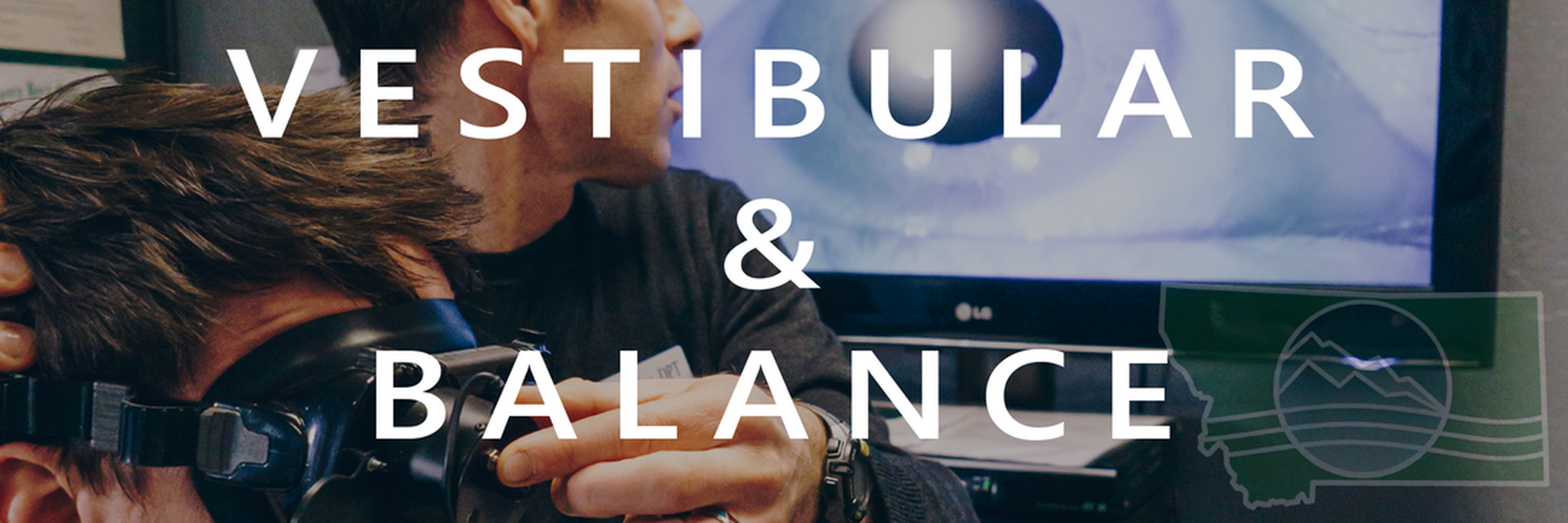What is a vestibular disorder?
People with a vestibular disorder experience symptoms that may include dizziness, vertigo, and balance problems. Patients may also experience nausea, sensitivity to motion, hearing changes, anxiety, fatigue, and difficulty concentrating. Some of the possible conditions affecting dizziness are:
When the internal balance (vestibular) system has been affected due to one of the above conditions, the brain can no longer accurately rely on the information it is receiving from it's vestibular system. A person having these types of difficulties will often try to decrease the problematic triggers of dizziness and nausea. These avoidance strategies can result in more headaches, muscle and joint stiffness, balance difficulties, as well as more fatigue. This results in a reduced ability for the brain to adapt and heal the nervous system's internal balance system. It is thus medically-advised to get your dizziness symptoms properly addressed and resolved with a physical therapy vestibular evaluation.
- BPPV (Benign Positional Paroxysmal Vertigo)
- Inner ear infections with dizziness (e.g. vestibular neuritis or labyrinthitis)
- Unilateral or bilateral vestibular loss
- Motion sickness/sensitivities and Persistent Postural-Perceptual Dizziness (3PD)
- Concussion & post-concussion issues
- Traumatic brain injuries
- Medication-related dizziness
When the internal balance (vestibular) system has been affected due to one of the above conditions, the brain can no longer accurately rely on the information it is receiving from it's vestibular system. A person having these types of difficulties will often try to decrease the problematic triggers of dizziness and nausea. These avoidance strategies can result in more headaches, muscle and joint stiffness, balance difficulties, as well as more fatigue. This results in a reduced ability for the brain to adapt and heal the nervous system's internal balance system. It is thus medically-advised to get your dizziness symptoms properly addressed and resolved with a physical therapy vestibular evaluation.
Treatment
Participants of the Vestibular and Balance Clinic undergo a comprehensive assessment to create an individualized treatment plan. Our clinic uses state-of-the-art equipment for evaluation and treatment including infrared goggles with video oculography. Vestibular rehabilitation is known to be a highly effective treatment for most individuals with inner ear disorders and can be significantly more effective in improving symptoms of dizziness or vertigo than generic exercises or medications. Our goal is to use the best evidence-based treatment techniques to ensure each patient gets back to the highest level of function at home, work and in the community.
Meet Our Team |
Specialized Training
Dr. Brace Hayden, DPT, OCS has a passion for treating patients with vestibular, dizziness, and balance problems as he finds improving balance and normalizing dizziness is a win-win satisfaction for the patient and therapist. Dr. Hayden completed the highest competency-based vestibular rehabilitation certification at Emory University. He often shares his expertise in the vestibular education field by instructing doctoral physical therapy students at the University of Montana. |
What to Expect
On your first visit, you will be asked a detailed history of your symptoms. You’ll then undergo a series of basic screening examinations to rule out any issues beyond our scope of practice. Based on the diagnosis and evaluation findings, a formal treatment plan will be developed. Vestibular rehabilitation treatments will then be used to correct the symptoms (ie. dizziness, vertigo, and balance problems) to improve the patient’s function and health.
Additionally, your therapist will take you through a series of positions to determine the best treatment for you. The evaluation and treatment are performed concurrently and may be quick, requiring only one to three visits. Occasionally, additional visits may required to fully address your balance or more complex problems.
Your vestibular rehabilitation may include:
Additionally, your therapist will take you through a series of positions to determine the best treatment for you. The evaluation and treatment are performed concurrently and may be quick, requiring only one to three visits. Occasionally, additional visits may required to fully address your balance or more complex problems.
Your vestibular rehabilitation may include:
- Balance Retraining Exercises for improving balance and reducing falls risk
- Canalyth Repositioning Techniques for treating dizziness and BPPV symptoms
- Gaze Stabilization Exercises for helping brain adapt to changes in the visual system
- Motion Sensitivity Training for reducing motion-provoked dizziness
Special Instructions
- We recommend that you hold off on eating for several hours prior to your first appointment. Some of the procedures may provoke your dizziness and nausea and you will feel better with an empty stomach.
- For your safety, we advise that you should have someone available to drive you home after your appointment. In some cases, vestibular symptoms will not be completely resolved or may worsen temporarily following treatment.
- Your physical therapy treatment for your dizziness may only require one to three visits, although some conditions may require more visits to best improve more complex problems. Each patient’s condition is evaluated and a plan of care is developed to best address their problems.
Additional Resources
The Vestibular Disorders Association has a helpful website for improving the understanding of many vestibular disorders, finding help and support groups, and offering many resources for professionals and patients.








